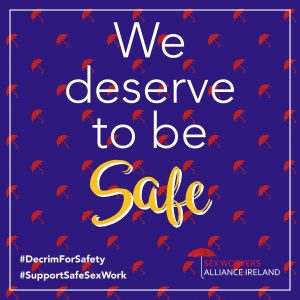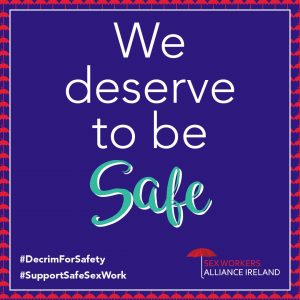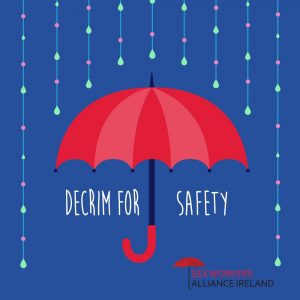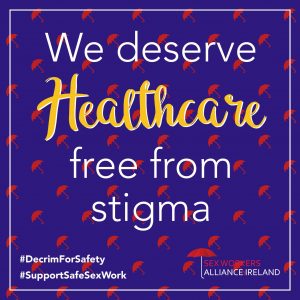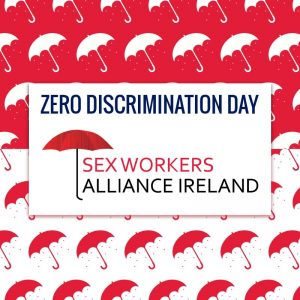A major surge in harassment of sex workers following the introduction of the so-called ‘Swedish Model’ in Northern Ireland was among the main findings in a review of the impact of the legislation, Dr Caoimhe Ní Dhónaill, co-author of a report commissioned for the Northern Ireland Department of Justice said at a meeting in Dublin tonight (Sunday, October 6th).
The meeting was organised by Kate McGrew and the Sex Workers Alliance Ireland as one of the first in a series of six events related to a similar review in the Republic of Ireland.
Caoimhe Ní Dhonaíll, a Queens University Belfast based academic, said that the report, the first in any country to compare data both before and after introduction of the ‘Nordic model’, says there appears to have been no impact on the number of sex workers, while support services remain paltry.
“While levels of serious and violent crime appear to have remained static, responses from sex workers indicate that almost three quarters (73%) reported ‘abusive or threatening phonecalls’ in the past year, while half reported abusive or threatening behaviour. This compares with only one in eight reporting similar abuse in the previous five years.
“These findings are almost identical to those from Uglymugs, an organisation documenting sex worker health and safety, that between 2016 and 2018 self-reported assault increased by 225%, while ‘other sexual assault’ increased by 300%. This includes threatening to call landlord/police, threatening to damage the sex worker’s reputation and unauthorised photography as well as seeking free sex.
The report, ‘A Review of the Criminalisation of paying for Sexual Services in Northern Ireland,’ was published in September by the Northern Ireland Department of Justice. It showed only 11% of clients stated an intention to stop purchasing sex.
“Evidence from the Médecins du Monde study of similar French legislation introduced in 2016 suggests it has no effect on abusive or violent clients, rather it is those who are non-abusive and non-violent who seem to be dissuaded. We, therefore, may simply be placing sex workers in more danger by imposing the Nordic model.
“Commercial sex now seems much riskier and more underground than before the Nordic model. A law claiming to tackle violence against women appears to instead facilitate an unsafe work environment.
“Worrying evidence also emerged that it is mainly sex workers themselves rather than statutory agencies who provide help and assistance in the area. “Only a minority of sex workers in the Northern Ireland survey accessed of Women’s Aid or Ruhama. Considerably more engaged with UglyMugs.ie and Sex Workers’ Alliance Ireland (SWAI), both based outside the jurisdiction.
“Neither does the law seems to have impacted on numbers entering sex work. 35 people started selling sex after the legislation was implemented in June 2015 which represents 21.6% of those that responded to this particular question. An estimated 308 sex workers are advertising across Northern Ireland on a daily basis, showing no reduction from figures cited in official research in 2014.
It also appears that many people dip in and out of sex work as need and circumstance dictate. For example, 39.4% of respondents had left for periods of up to six months but then returned,” Caoimhe Ní Dhónail said.
“The government here should instigate similar detailed research as part of the review of legislation in the Republic of Ireland,” Kate McGrew, Director, Sex Workers Alliance Ireland, said in response.
“Legislation here follows the same Swedish Model approach that is clearly shown in Northern Ireland to be grossly defective. SWAI is increasingly aware of safety and health concerns affecting sex workers, particularly those working alone. The government must not continue to turn a blind eye to the facts,” she said.
“The national coordination body for police services in the UK, The National Police Chiefs Council, has advised UK police services not to equate all sex work with trafficking in its operational guidance issued in January 2019. It is time that the law here also clearly separates sex work that women undertake by their own decision from instances of trafficking and other abuses,” she said.

